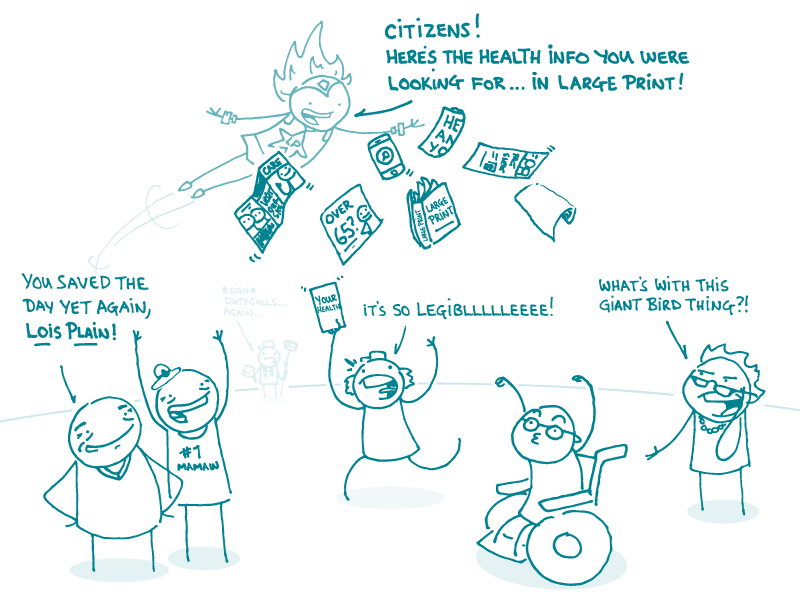
Here at We ❤ Health Literacy Headquarters, we’re all about the tools that empower people to take control of their health. Today, we want to chat about why these tools are especially important for older adults.
As a group, this crowd has some complicated health care needs: they have more chronic illnesses than any other age group, which means they need a lot of health care. And unfortunately, they’re more likely than any other age group to have low health literacy. According to the National Assessment of Adult Literacy, only 3 percent of older adults have proficient health literacy skills.
Plus, unlike wine and cheese, vision and hearing generally don’t improve with age — and vision and hearing loss can make it harder to find and understand information. In a nutshell, older adults need more health care and they’re likely to have a harder time accessing it.
And that means our job as health communicators becomes extra important. Of course all the regular suspects apply — write in plain language, provide a clear main message… you know all the things, dear readers. But keep these specific tips in mind when writing for older audiences, too.
- Make your content extra easy to see and read. Choose fonts with good contrast, consider using a larger font size, and increase leading.
- Prioritize images. Visuals are great for helping people remember things, so make sure to use plenty of relevant images to support your main message and hold folks’ attention.
- Think about print. Older adults are less likely to have internet access, and they may be less comfortable reading online. So try getting your message out the old-fashioned way, too. And if you’re writing online health content, make sure it’s print friendly!
- Use teach-back and show-me. When communicating in person, check for understanding by asking older patients to explain or demonstrate the thing you’re trying to communicate.
- Skip the elderspeak. We had to write a whole post on how not to talk to older folks. So yeah, just don’t do that.
The bottom line: Older adults need (and deserve!) information about health and health care that’s clear, accessible, and respectful.
Tweet about it: This week from @CommunicateHlth: #HealthLit tips for communicating with #OlderAdults: https://bit.ly/2Z80zue
Browse recent posts